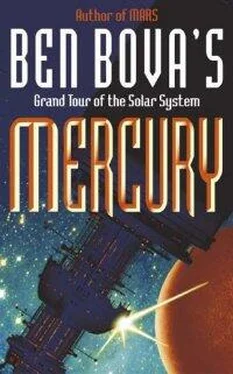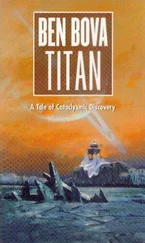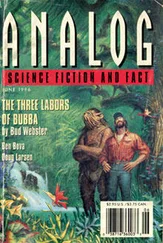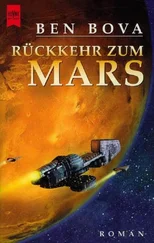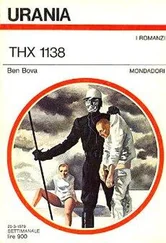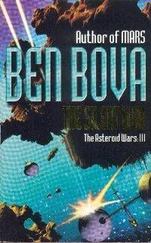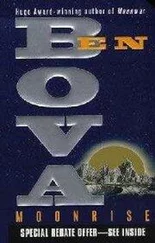Ben Bova - Mercury
Здесь есть возможность читать онлайн «Ben Bova - Mercury» весь текст электронной книги совершенно бесплатно (целиком полную версию без сокращений). В некоторых случаях можно слушать аудио, скачать через торрент в формате fb2 и присутствует краткое содержание. Год выпуска: 2005, ISBN: 2005, Издательство: Hodder & Stoughton, Жанр: Космическая фантастика, на английском языке. Описание произведения, (предисловие) а так же отзывы посетителей доступны на портале библиотеки ЛибКат.
- Название:Mercury
- Автор:
- Издательство:Hodder & Stoughton
- Жанр:
- Год:2005
- ISBN:978-0-340-82395-8
- Рейтинг книги:4 / 5. Голосов: 1
-
Избранное:Добавить в избранное
- Отзывы:
-
Ваша оценка:
- 80
- 1
- 2
- 3
- 4
- 5
Mercury: краткое содержание, описание и аннотация
Предлагаем к чтению аннотацию, описание, краткое содержание или предисловие (зависит от того, что написал сам автор книги «Mercury»). Если вы не нашли необходимую информацию о книге — напишите в комментариях, мы постараемся отыскать её.
Mercury — читать онлайн бесплатно полную книгу (весь текст) целиком
Ниже представлен текст книги, разбитый по страницам. Система сохранения места последней прочитанной страницы, позволяет с удобством читать онлайн бесплатно книгу «Mercury», без необходимости каждый раз заново искать на чём Вы остановились. Поставьте закладку, и сможете в любой момент перейти на страницу, на которой закончили чтение.
Интервал:
Закладка:
Yamagata smiled good-naturedly at them both. “I have never been to Mars. My son once thought of moving me to the Moon, but I was dead then.”
Both pilots gaped at him as he unstrapped his safety harness and stood up, his head a bare centimeter from the cabin’s metal overhead. Their warning about the Mercurian gravity was strictly pro forma, of course. Yamagata had instructed Himawari’s captain to spin the fusion torch vessel at one-third normal gravity once it reached Mercury after its four-day flight from Earth. He felt quite comfortable at one-third g . Leaning between the two pilots’ chairs, Yamagata peered out the cockpit window. Even through the window’s tinting, it looked glaring and hot out there. Pitiless. Sun-baked. The stony surface of Mercury was bleak, barren, pockmarked with craters and cracked with meandering gullies. He saw the long shadow of their shuttle craft stretched out across the bare, rocky ground before them like an elongated oval.
“The Sun is behind us, then,” Yamagata muttered.
“Yes, sir,” said the pilot. “It will set in four hours.”
The copilot, who still had not learned that she was supposed to be subordinate to the pilot, added, “Then it will rise again for seventy-three minutes before setting for the night.”
Yamagata saw the clear displeasure on the pilot’s face. The man said nothing to his copilot, though. Instead, he pointed toward a rounded hillock of stony rubble.
“There’s the base,” he informed Yamagata. “Dante’s Inferno.”
Yamagata said, “They are sending out the access tube.”
A jointed tube was inching toward them across the uneven ground on metal wheels, reminding Yamagata of a caterpillar groping its way along the stalk of a plant on its many feet. He felt the shuttle rock slightly as the face of the tube thumped against the craft’s airlock.
The pilot watched the display on his panel, lights flicking on and off, a string of alphanumerics scrolling across the screen. He touched a corner of the screen with one finger and a visual image came up, with more numbers and a trio of green blinking lights.
“Access tube mated with airlock,” he announced, reverting to the clipped jargon of his profession. To the copilot he commanded, “Check it and confirm integrity.”
She got up from her chair wordlessly and brushed past Yamagata to head back to the airlock. He appreciated the brief touch of her soft body, the hint of flowery perfume. What would she do if I asked her to remain here at the base with me? Yamagata wondered. A European. And very independent in her manner. But I have a dinner appointment with my two guests, he reminded himself. Still, the thought lingered.
After a few silent moments, the pilot rose from his chair and walked a courteous three steps behind Yamagata to the airlock’s inner hatch. The copilot stepped through from the opposite direction, a slight smile curving her generous lips.
“Integrity confirmed,” she said, almost carelessly. “The tube is airtight and the cooling system is operational.”
Yamagata saw that the outer airlock hatch was open, as well, and the access tube stretched beyond it.
He politely thanked the two pilots and headed down the tube. Despite her insouciance, at least the copilot had the sense to bow properly. The tube was big enough for him to stand without stooping. The flooring felt slightly springy underfoot. It curved gently to the left; within a few paces he could no longer see the two pilots standing at the shuttle’s hatch.
Then he saw the hatch to the base, which was closed. Someone had scrawled a graffito in blood-red above the curved top of the hatch: Why, this is hell, nor am I out of it.
Yamagata grunted at that. As he reached out his hand to tap the electronic panel that controlled the hatch, it swung open without his aid.
A lean, pale-skinned man with dark hair that curled over his ears stood on the other side of the hatch, wearing not the coveralls Yamagata expected, but a loose-fitting white shirt with flowing long sleeves that were fastened tightly at his wrists and a pair of dark baggy trousers stuffed into gleamingly polished calf-length boots. A wide leather belt cinched his narrow, flat middle.
He smiled politely and extended his hand to Yamagata. “Welcome to Goethe base, Mr. Yamagata. I can’t tell you how pleased I am to have you here. I am Dante Alexios.”
Yamagata accepted his hand. His grip was firm, his smile gracious. Yet there was something wrong with his face. The two sides of it seemed slightly mismatched, almost as if two separate halves had been grafted together by an incompetent surgeon. Even his smile was slightly lopsided; it made him appear almost mocking, rather than friendly.
And his eyes. Dante Alexios’s dark brown eyes burned with some deep inner fury, Yamagata saw.
Dante’s Inferno indeed, he thought.
SUNPOWER FOUNDATION
Alexios showed Yamagata through the cramped, steamy base. It was small, built for efficiency, not human comfort. Little more than an oversized bubble of honeycomb metal covered with rubble from Mercury’s surface to protect it from the heat and radiation, its inside was partitioned into cubicles and larger spaces. Goethe base was staffed with a mere two dozen engineers and technicians, yet it seemed as if hundreds of men and women had been packed into its crowded confines.
“We thought about establishing the base in orbit around the planet,” Alexios explained as they walked down a row of humming consoles. Yamagata felt sweaty, almost disgusted at the closeness of all these strangers, their foreignness, their body odors. Most of them were Europeans or Americans, he saw; a few were obviously African or perhaps African-American. None of them paid the slightest attention to him. They were all bent over their consoles, intent on their tasks.
“My original plan was for the base to be in orbit,” Yamagata said.
Alexios smiled diplomatically. “Economics. The great tyrant that dictates our every move.”
Remembering the lessons in tolerance the lamas had pressed upon him, Yamagata was trying to keep the revulsion from showing on his face. He smelled stale food and something that reminded him of burned-out electrical insulation.
Continuing as if none of this bothered him in the slightest, Alexios explained, “We ran the numbers a half dozen times. If we’d kept the base in orbit we’d have to bring supplies to it constantly. Raised the costs too high. Here on the surface we have access to local water ice and plenty of silicon, metals, almost all the resources we need, including oxygen that we bake out of the rocks. Plenty of solar energy, of course.
So I decided to plant the base here, on the ground.”
“You decided?” Yamagata snapped.
“I’m an independent contractor, Mr. Yamagata. These people are my employees, not yours.”
“Ah yes,” Yamagata said, recovering his composure. “Of course.”
“Naturally, I want to do the best job possible for you. That includes keeping the project’s costs as low as I can.”
“As I recall it, you were the lowest bidder of all the engineering firms that we considered, by a considerable margin.”
“Frankly,” Alexios said, smiling slightly, “I deliberately underbid the job. I’m losing money here.”
Yamagata’s brows rose in surprise.
“I’m fairly well off. I can afford a whim now and then.”
“A whim? To come to Mercury?”
“To work with the great Saito Yamagata.”
Yamagata searched Alexios’s strangely asymmetrical face. The man seemed to be completely serious; not a trace of sarcasm. He dipped his chin slightly in acknowledgment of the compliment. They had come to the end of the row of consoles. Yamagata saw a metal door in the thin partition before them, with the name D. alexios stenciled on it. Beneath it was a smeared area where someone had tried to wipe out a graffito, but it was still faintly legible: He who must be obeyed.
Читать дальшеИнтервал:
Закладка:
Похожие книги на «Mercury»
Представляем Вашему вниманию похожие книги на «Mercury» списком для выбора. Мы отобрали схожую по названию и смыслу литературу в надежде предоставить читателям больше вариантов отыскать новые, интересные, ещё непрочитанные произведения.
Обсуждение, отзывы о книге «Mercury» и просто собственные мнения читателей. Оставьте ваши комментарии, напишите, что Вы думаете о произведении, его смысле или главных героях. Укажите что конкретно понравилось, а что нет, и почему Вы так считаете.
